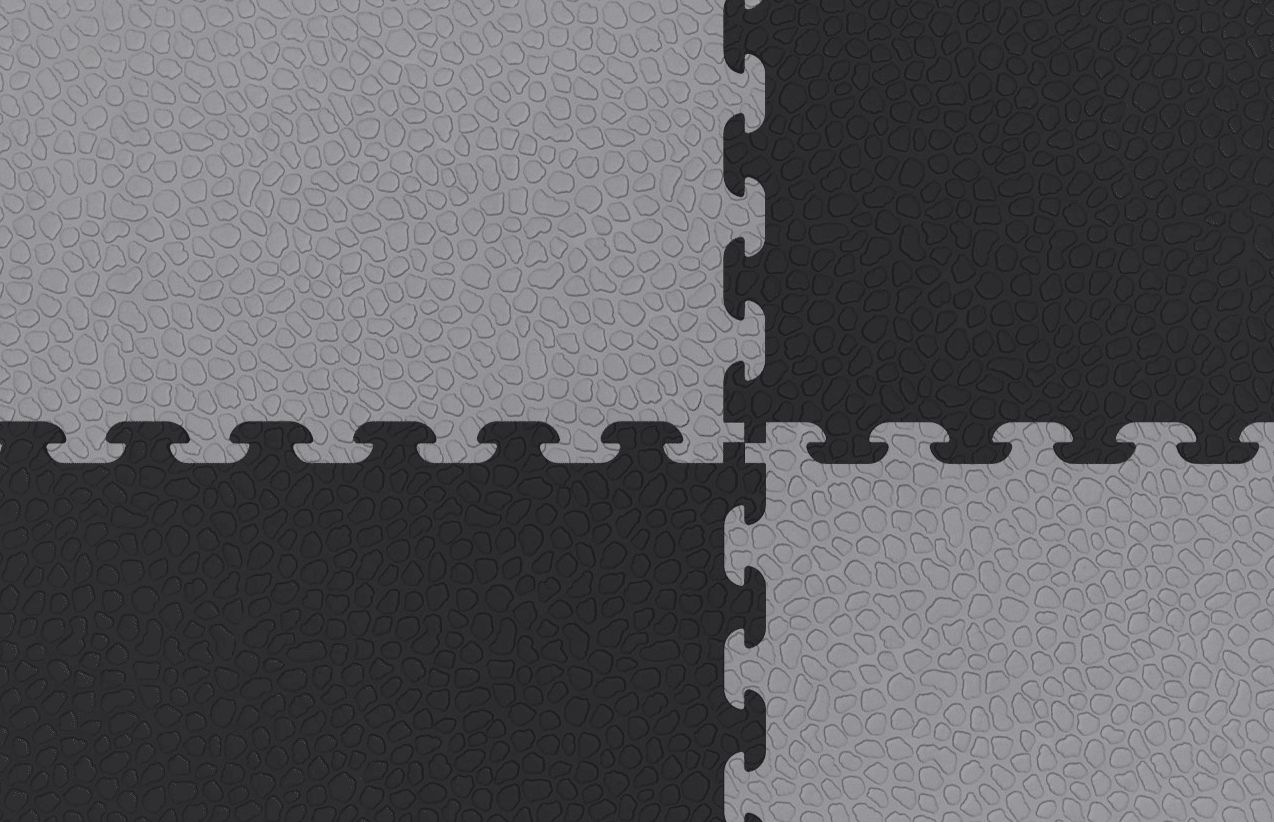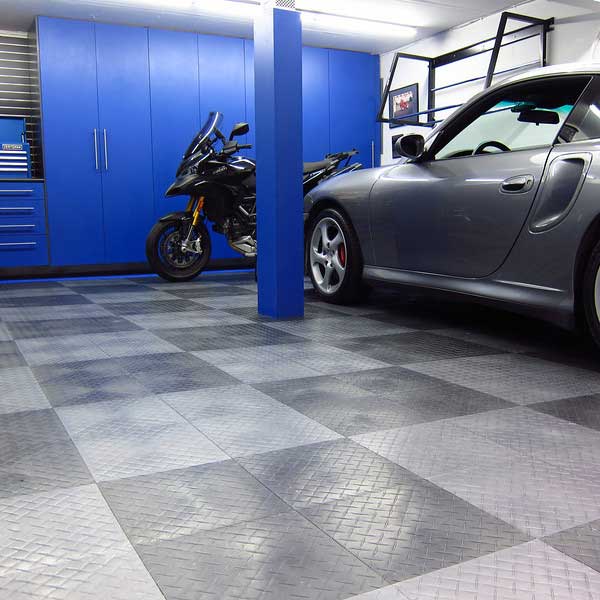So you are thinking about installing some garage floor tiles, but first, you have some questions. We have compiled a list of the most Frequently Asked Questions (FAQ) and answered them here. Updated Top 10 Questions article available. View our garage floor tiles.
We answered this question in a video last week, and it was accompanied by a blog post. We invite you to watch the video and read the post.
PVC tiles are flexible, have tighter locking systems, and are naturally quieter, but they are a terrible idea for most garages because they stain from tires. Polypropylene tiles are rigid, allow air and water to enter and exit the system and are more stain and chemical-resistant
In general, you will need a tape measure and a table saw. A circular saw will work, too. We find a jig saw very useful from more minor cuts. UPDATE: Renting a laminate floor cutter is a great way to cut garage floor tiles
Installation time varies greatly depending on complexity and other factors. In general, most people can do a two-car garage in about 4 hours. I have seen it done in as little as two hours, and I have seen it take longer than a day.
YES. With a handful of exceptions, liquids, and debris go through the tile. Our tiles are designed to allow the moisture to exit the system. Many manufacturers still recommend cleaning under the tiles annually.
A flow-through tile is a great option, as you can clean through the tile
Generally, these products are not glued down. There are a few exceptions on a product-by-product and application-by-application basis.
We are in the garage flooring business. We have no interest in taking your money for a product you will not be satisfied with. We focus on high-quality, American-made garage floor tiles. We have a couple of PVC lines that are made overseas, but we are very confident in their quality. We won’t sell cheap garage floor tiles because they won’t hold up.
People use tiles in all sorts of applications, including welding. Welding slag will melt tiles, and a welding blanket is suggested. Hot weld slag can damage tiles. We recommend reviewing this video
NO! The expansion and contraction will cause the product to buckle and the product will shift too much.
Typically you will only need female edges at the garage door. 1 edge for each foot, and the door is wide. We do have a video explaining edge pieces. If you are not doing a wall-to-wall installation, you will need more edges and corners.
Absolutely. It is not easy to do the first time, but once you understand how to disengage the locks, it is a very quick process. RaceDeck has a great video on the topic
We have three ways for you to calculate this. Click here for an explanation of the three different tools we have available to you.
In a word. NO.
Generally, in wall-to-wall applications, the tiles do not slide. There are always exceptions. Parking pads and partial installs may move. There are easy ways to resolve this.
Hard plastic or polypropylene tiles can cause an echo. If you have dirt under the floor you can hear a noise when you pull onto the floor. Most of these issues are quickly resolved with underlayment. PVC tiles are quiet.
The side with the loops is female. Many people think this is backward until they see how the tiles go together. The pegs are inserted into the loops.
Yes, we are happy to send out samples. In most cases, we send two FULL SIZED samples.
Many of our customers also found the following articles interesting:
Open tiles in a workshop
What Garage Floor Tile is Best for Me




